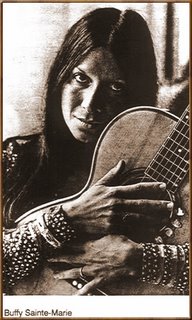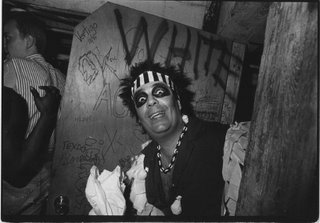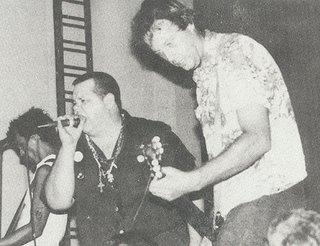
Interesting but flawed article about government attempts to suppress the music of Buffy Sainte-Marie, as well as other Native American artists like John Trudell, during the 1970s.
Unfortunately, this is based in part on the testimony of a former government covert operative named Charles Schlund.
Now, in federal court, Charles August Schlund III stated he is a covert operative and supports Sainte-Marie's assertions that the United States took action to suppress rock music because of its role in rallying opposition to the Vietnam War...
In his federal court affidavit, Schlund said he has knowledge of ''the detailed plans for the break-up and destruction of rock n' roll music including the assassinations of many people to achieve their goals. The detailed plans to replace rock n' roll music with all-American music called country western.''
''This massive CIA and DEA covert operation was being conducted to stop political overtones in the rock n' roll music and to stop foreign influences on Americans caused by the exposure to foreign music. This operation was conducted because the Rockefellers had lost the Vietnam War because of the protest that was in part directly linked with rock n' roll music. In these files, the Rockefellers had needed the natural resources of Vietnam for the expansion of their corporate empire and they blamed the loss of the war in part on rock n' roll music.
''The assassinations started long before Vietnam but the plans to replace rock n' roll with country western music started during the Vietnam War and have continued to the present,'' Schlund stated to the court.
In his federal court affidavits filed in Maricopa County in Arizona, Schlund also stated that singer Buddy Holly, killed in an airplane crash in 1959, was considered a threat to the U.S. government.
The article brings out other evidence to suggest that the US government did make efforts to suppress Buffy Sainte-Marie, and Schlund may indeed have had knowledge of this. But "The Rockefellers"? And Buddy Holly?! Please!






